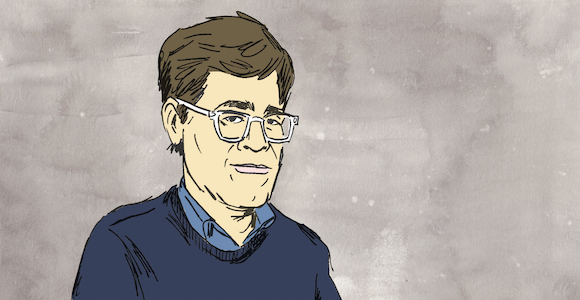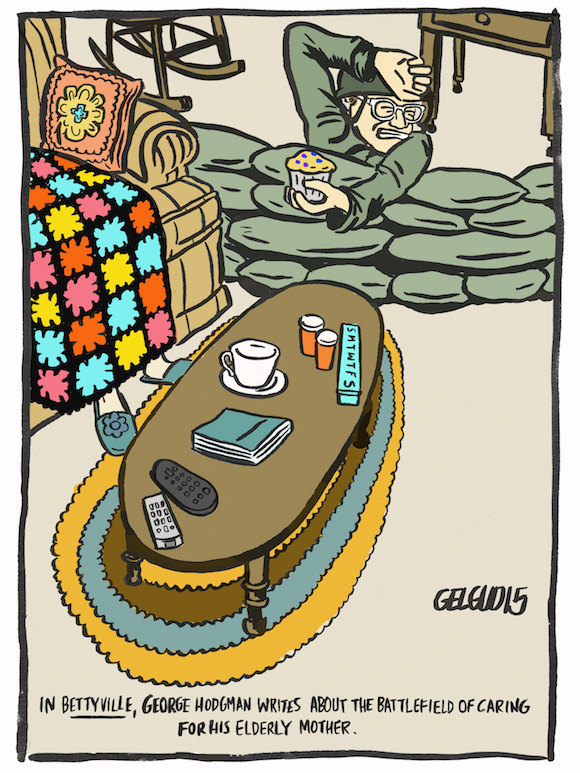In ‘Bettyville: A Memoir,’ George Hodgman Cares for His Aging Mother
By Nathan Gelgud

George Hodgman by Nathan Gelgud, 2015.
When George Hodgman was a boy, he prepared for a fishing trip with his dad by digging up two worms and putting them in a glass jar. Before leaving the house, he changed his mind about what to do with the bait. Instead of bringing it with him, he left the jar on the kitchen table with a little handmade sign for his mother. It read, "ENJOY YOUR LUNCH!"
Decades later, Hodgman would return home, this time obligated to find more appropriate lunch fare for Betty, his elderly mother. A writer and editor in New York, Hodgman goes to Paris, Missouri, "population 1,246 and falling," and reflects on the experience in his new memoir, Bettyville. He's not sure if he's doing such a good job of caring for her, and Betty isn't sure, either. She listens in on phone conversations to make sure her son isn't hatching a plot against her. She eyes him suspiciously when they both find themselves awake in the middle of the night in the kitchen. If he gets too close to her, Betty slaps at the air to swat him away. Hodgman is not a caretaker, he writes, but a care inflictor.
This is not a quaint homecoming. The town is ragged, and Hodgman feels out of place. Drug addicts wander the sides of the highways in the early mornings after being up all night, and the most exciting plans Hodgman can make for himself are to drive to a nearby town to buy the New York Times, see a matinee of "The Master," and eat at Taco Bell. But even these modest hopes are dashed when Betty insists on tagging along, even though they stopped going to movies together forty years ago, when young Hodgman convinced her to take him to "They Shoot Horses, Don't They?," "the most depressing movie ever made."
Hodgman does this throughout the book, pairing events in the present with parallel events from his childhood to create his own life story and that of his mother. His career as a writer and editor is rooted in his love for the public library, where he discovered his homosexuality as a boy, paying repeated visits to a photography book featuring a photo of a naked soldier. Today, he still kills time in libraries. In present-day stories of Betty, she comes across as funny, sassy, and impossible. But as the backstory is filled in, she seems to have earned the right to be stubborn and difficult, having lived a difficult life that skirted the edges of poverty. Today, she is still very careful with money -- "a firm advocate of the early bird special," Hodgman writes. This time around, he resists the temptation to offer her the worm that comes with being the early bird.

